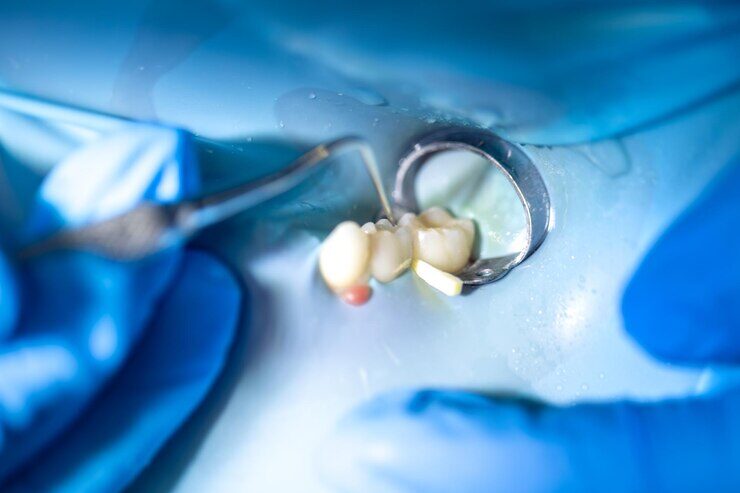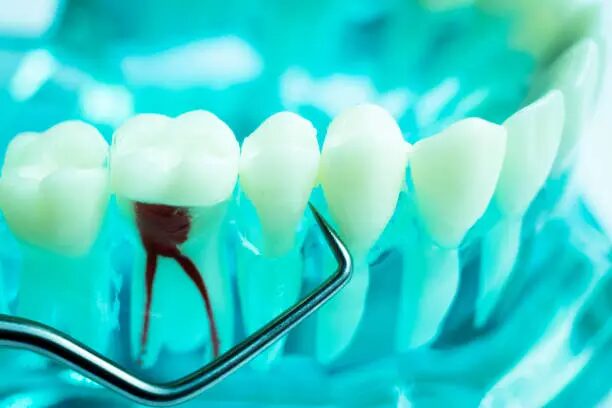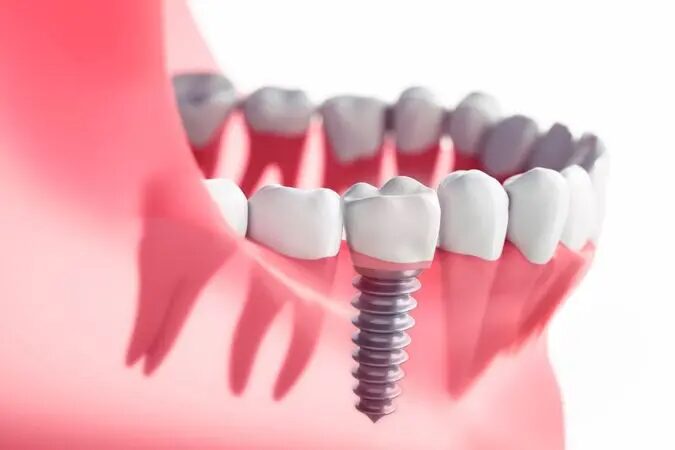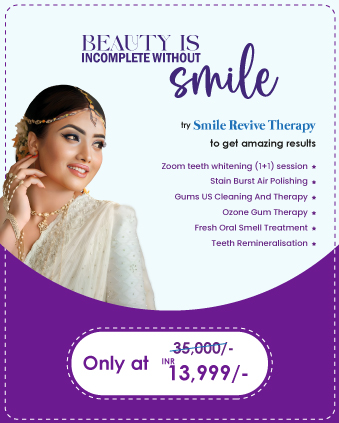Welcome to Dant Suraksha, your go-to clinic for dental care and oral health. In this blog, we’ll shed light on the common problem of tooth sensitivity and provide you with five simple yet effective ways to manage it from the comfort of your own home. We understand that dental jargon can be overwhelming, so we’ll break it down into simple terms to ensure everyone can grasp the information and relate to it.
Understanding Tooth Sensitivity
Tooth sensitivity, also known as dentin hypersensitivity, occurs when the protective layer of your teeth, known as enamel, wears away or when your gums recede, exposing the underlying dentin. This dentin contains tiny tubules that connect to the nerves in your teeth. When these tubules are exposed to external stimuli such as hot, cold, sweet, or acidic foods and beverages, you may experience sharp, sudden pain or discomfort.
The Causes of Tooth Sensitivity

Brushing Technique
Brushing your teeth with excessive force or using a hard-bristled toothbrush can gradually wear away the enamel, leading to sensitivity.
Dental Cavities
Tooth decay and cavities can expose the sensitive dentin, resulting in sensitivity. Regular dental check-ups can help detect and treat cavities early on.
Gum Recession
Poor oral hygiene practices, gum disease, or aggressive brushing can cause your gums to recede, exposing the sensitive root surfaces of your teeth.
Teeth Grinding
Grinding or clenching your teeth, especially during sleep, can wear down the enamel, leading to sensitivity. A custom mouthguard can help protect your teeth from grinding.
Acidic Foods and Drinks
Consuming excessive amounts of acidic foods and beverages like citrus fruits, sodas, or vinegar-based products can erode your enamel, making your teeth more sensitive.
- 12 Free Consultations
- 10% off on all Treatments
- 1 Free Smile Assessment
Simple Ways to Manage Tooth Sensitivity at Home
Use a Soft-Bristled Toothbrush: Switch to a soft-bristled toothbrush and practice gentle circular motions while brushing. This will help protect your enamel while effectively cleaning your teeth. The most powerful tip here is to use a non-working hand to brush your teeth i.e. if you are a right-handed person use your left hand to brush your teeth, this automatically will create less force on your teeth and reduce abrasion.
Use a Desensitizing Toothpaste: Opt for toothpaste specifically designed for sensitive teeth. These kinds of toothpaste contain compounds that help block the tubules in the dentin, reducing sensitivity.
Practice Good Oral Hygiene: Maintain a consistent oral care routine by brushing twice a day and flossing regularly. This will help prevent tooth decay, gum disease, and further enamel erosion.
Avoid Triggering Foods and Drinks: Limit your consumption of acidic and sugary foods. If you do indulge, rinse your mouth with water afterwards to minimize its effects on your teeth.
Wear a Night Guard: If you’re prone to teeth grinding, consider using a night guard. This custom-made device will create a protective barrier between your upper and lower teeth, preventing enamel erosion.

Conclusion
Tooth sensitivity can be a bothersome condition, but with a few simple changes to your oral care routine and lifestyle, you can effectively manage it at home. By adopting a softer brushing technique, using desensitizing toothpaste, maintaining good oral hygiene, avoiding trigger foods, and protecting your teeth from grinding, you can significantly reduce tooth sensitivity and enjoy a pain-free smile.
Remember, while these home remedies can alleviate mild to moderate tooth sensitivity, it’s essential to consult a dental professional at Dant Suraksha for a thorough examination if the sensitivity persists or worsens. Our team of experts will provide personalized guidance and treatment options to ensure your dental health remains in good hands. Stay proactive, take care of your teeth, and let Dant Suraksha be your partner in achieving a healthy, beautiful smile.
What are the professional treatments to prevent hypersensitivity of teeth?
Professional treatments can be highly effective in preventing and managing tooth sensitivity. If home remedies don’t provide sufficient relief, it’s advisable to visit a dental professional at Dant Suraksha for a comprehensive evaluation. Here are some professional treatments commonly used to prevent and treat tooth sensitivity:
Fluoride Application
Your dentist may apply fluoride varnishes, gels, or foams to strengthen the enamel and reduce sensitivity. Fluoride helps to remineralize the tooth structure and make it more resistant to external stimuli.
Dental Bonding
In cases where tooth sensitivity is caused by exposed root surfaces, dental bonding can be used. Your dentist will apply a tooth-coloured composite resin to cover and protect the exposed areas, reducing sensitivity and improving aesthetics.
Dental Sealants
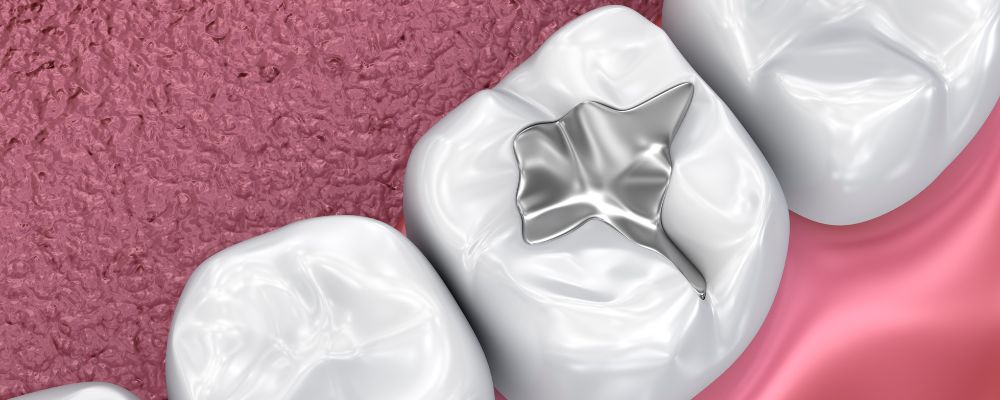
Dental sealants are thin protective coatings that are applied to the chewing surfaces of teeth, especially premolars and molars. They act as a barrier, shielding the teeth from bacteria and acids that can cause sensitivity and cavities.
Gum Grafting
If gum recession is the underlying cause of sensitivity, your dentist may recommend a gum graft. This procedure involves taking tissue from another area of your mouth and grafting it onto the affected gumline, covering the exposed roots and reducing sensitivity.
Root Canal Therapy
In severe cases of tooth sensitivity where other treatments have failed, root canal therapy may be necessary. Root Canal Treatment procedure involves removing the infected or damaged pulp from the tooth and sealing it to alleviate pain and sensitivity.
Orthodontic Treatment
Misaligned teeth or bite issues can contribute to tooth sensitivity. In such cases, orthodontic treatment, such as braces or clear aligners, can help realign the teeth, reducing sensitivity and improving overall oral health.
Prescription Medications
In certain situations, your dentist may prescribe desensitizing agents or medications to manage tooth sensitivity. These may include gels, rinses, or mouthwashes that provide long-lasting relief from sensitivity.
It’s important to note that the appropriate treatment option will depend on the underlying cause and severity of your tooth sensitivity. Your dentist will evaluate your specific situation and recommend the most suitable course of action.
Remember, professional dental care and regular check-ups are crucial for maintaining optimal oral health and preventing tooth sensitivity. Don’t hesitate to reach out to the experts at Dant Suraksha for personalized guidance and treatment options tailored to your needs.
Most advanced treatments at the dental office to cater to Hypersensitivity Issues
Dental offices today offer advanced treatments to effectively address hypersensitivity issues. These advanced treatments focus on targeting the underlying causes of tooth sensitivity and providing long-lasting relief. Here are some of the most advanced treatments available at DANT SURAKSHA :
Laser Therapy

Laser treatment is increasingly used in dentistry to treat various oral conditions, including tooth sensitivity. Dental lasers can be used to selectively remove bacteria and decay, stimulate tissue regeneration, and seal exposed dentinal tubules. Laser therapy is minimally invasive, and precise, and often results in reduced sensitivity and improved oral health.
In-office Desensitizing Treatments
Dental professionals may apply high-concentration desensitizing agents or fluoride varnishes during in-office treatments. These treatments help to block the open dentinal tubules, reducing sensitivity and providing immediate relief. The application is quick and painless, making it an effective option for patients with hypersensitivity.
Dental Restorations
In cases where tooth sensitivity is caused by dental decay, fractures, or worn-out fillings, dental restorations may be necessary. Modern restorative materials, such as composite resin or porcelain, can effectively seal and protect sensitive areas, restoring comfort and functionality to the teeth.
Gum Tissue Treatment
If gum recession is contributing to tooth sensitivity, advanced gum tissue treatments like pinhole surgical technique or connective tissue grafts can be performed. These procedures help to restore gum tissue and cover exposed root surfaces, reducing sensitivity and improving the appearance of the smile.
Nerve Desensitization Procedures
In certain cases, advanced nerve desensitization procedures can be performed to target specific nerves causing hypersensitivity. These procedures involve the application of specialized medications or materials to block nerve signals and provide long-lasting relief from sensitivity.
Conclusion
It’s important to consult with a dental professional at Dant Suraksha in Dilshad Garden to determine which advanced treatment option is most suitable for your specific hypersensitivity issues. They will assess your dental health, discuss the available options, and create a personalized treatment plan to address your concerns effectively.
By utilizing these advanced treatments, dental offices can effectively manage hypersensitivity issues, providing patients with lasting relief and improved oral health.
Take action today! Book an appointment and embark on your journey toward a pain-free, confident smile. Together, we can overcome tooth sensitivity and restore harmony to your oral kingdom.



